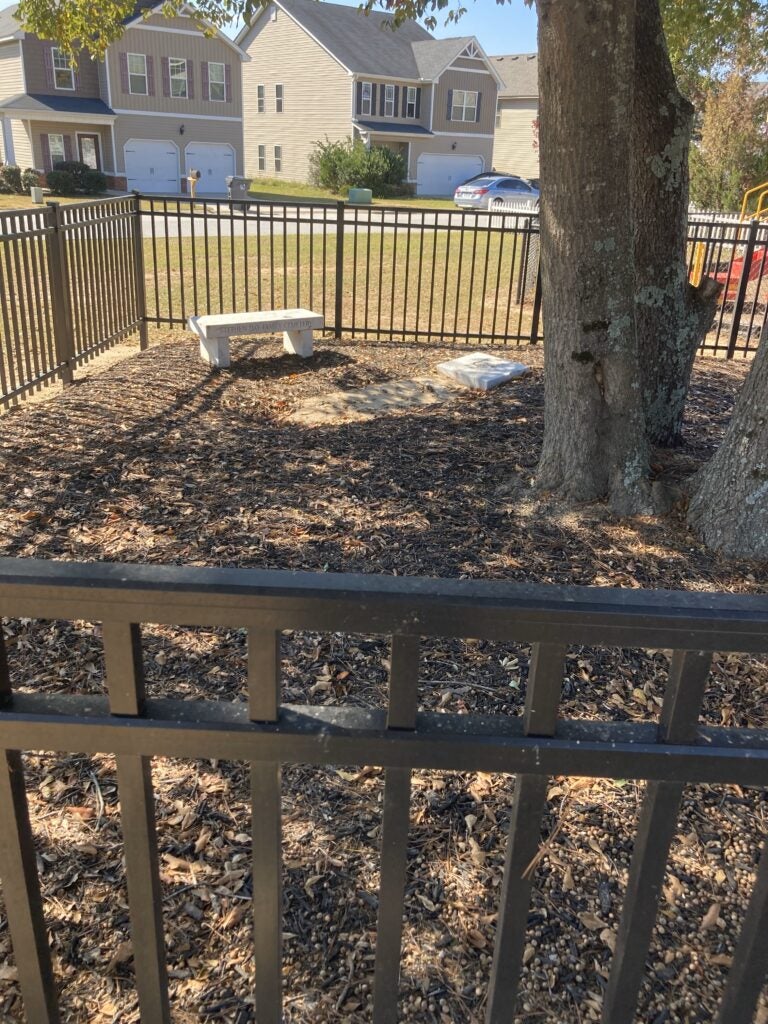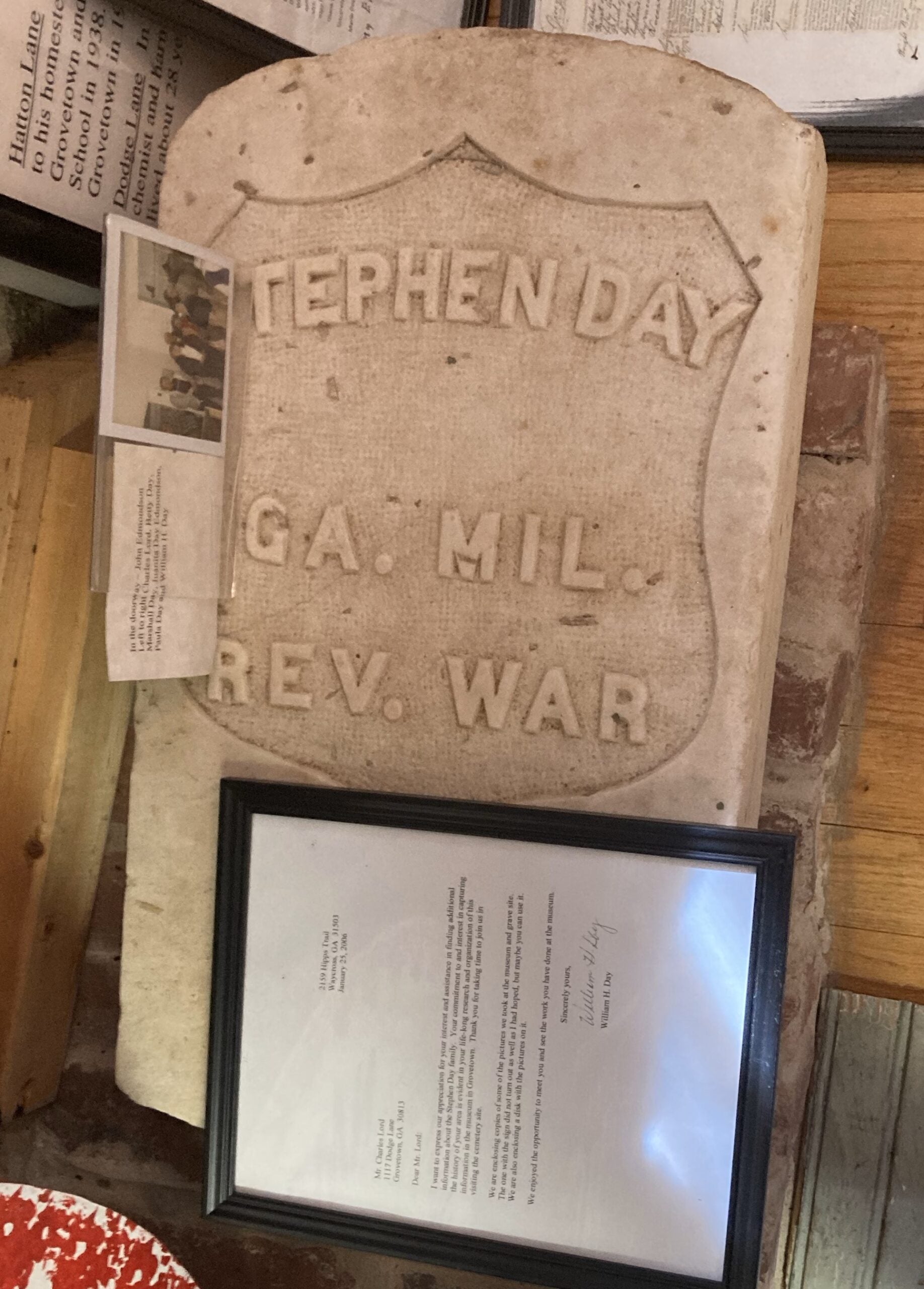The ancestors of American Revolution soldier Stephen Day (1742 – 1825) discovered that his missing headstone was actually in the possession of the Grovetown Museum and have tried for the past three years to have it returned.
However, according to the family, the museum has basically told them “finders-keepers.”
Workers developing the Grove Landing neighborhood had found the gravestone in a pile of rubble, but could not find a corresponding grave; so the headstone was turned over to the museum.
Some time later, a grave was discovered in the development area, and records from the Daughters of the American Revolution showed that the grave belonged to Day.
Thinking that the gravestone was long lost, the family purchased a new marker and built a metal fence around the site and installed a marble reflecting bench.

The family then found that the original tombstone was sitting in the museum, and when the family asked that the marker be put back in the original location, they were met with a firm, “No.”
Susan Sussman, the great-great-great-great granddaughter of Day, says the staff at the museum tried to tell her that the marker had been donated by the Daughters of the American Revolution for display.
“I am a member of the DAR, and I know that our policy is not to donate gravestones. We find the grave it belongs to and return it,” Sussman said.
MORE: Burke man who used toddlers as human shields in standoff found guilty
The Grovetown Museum is owned and operated by the city of Grovetown.
Grovetown Mayor Gary Jones says that he was unaware of the situation, but that he was going to investigate the matter.
“If the city is holding on to someone else’s property, then we have to give it back,” Jones said.
Stephen Day was originally from Pennsylvania where he was raised a Quaker, a religious group that is fervently pacifist. When the Revolution began, Day’s patriotism outweighed his religious beliefs, and he signed up for war.
Because he decided to take up arms, he was excommunicated from the Quakers.
After the war, having no reason to return to Pennsylvania, Day migrated south and ended up in present day Grovetown. When he died, he was buried on his own property, rather than a cemetery, which was the rural custom of the time.
Sussman, who lives in Florida, says she is thrilled that the mayor of Grovetown is getting involved and she can’t wait for the family to get the heirloom back and have it restored back to its original location.
“(Day) sacrificed a lot for his country, his family disowned him, and he risked his life for the cause of liberty. He is an American hero,” Sussman said.
Scott Hudson is the Senior Investigative Reporter and Editorial Page Editor for The Augusta Press. Reach him at scott@theaugustapress.com











